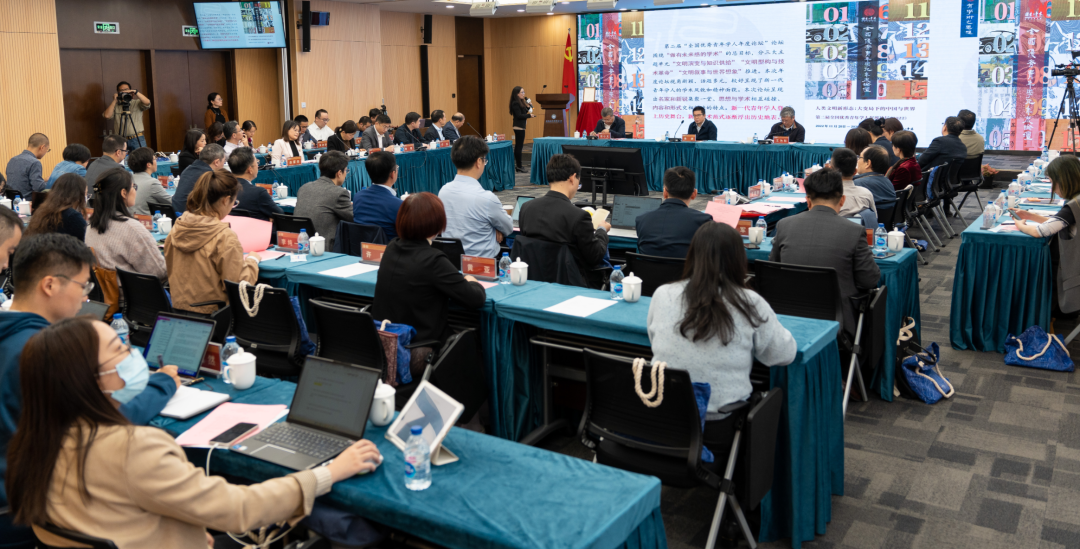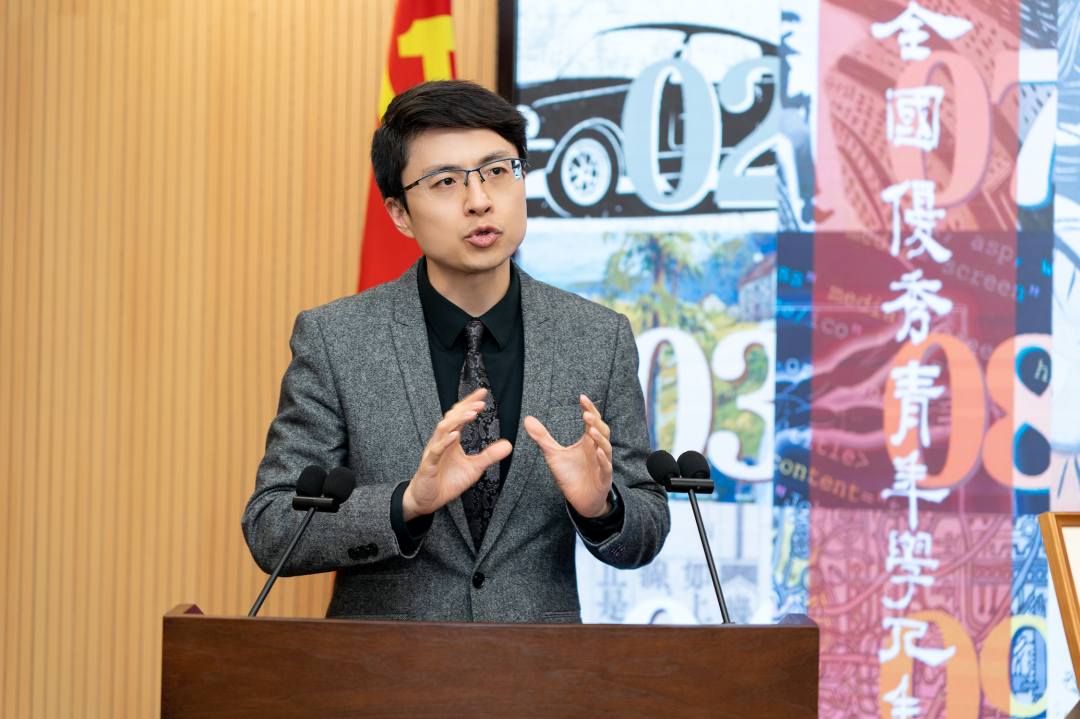Wu Guanjun: From metaverse to interactive ontology: rethinking the form of civilization and its intellectual basis
November 21, the First Shanghai Social Science Youth Wangdao Forum 2022, which was sponsored by Shanghai Social Science Center affiliated to Shanghai Federation of Social Science Associations and hosted by the Editorial Department of Exploration and Free Views, was held in Shanghai. The forum was attended by 300 people, on line or off line.

Wu Guanjun, Dean of the School of Politics and International Relations of ECNU, delivered a speech with the title: From metaverse to interactive ontology: rethinking the form of civilization and its intellectual basis.

A distinguished Changjiang Scholar of the Ministry of Education, Wu Guanjun put forward the concept of “interactive ontology” to illustrate how academic reflection on modernity has failed to the subjective paradigm of anthropocentrism. For example, Habermas proposed the “intersubjectivity” paradigm, believing that people should care about how to establish normative principles between each other. This paradigm, in Wu’s view, failed to discuss interaction at the ontological level; on the contrary the Habermasian “intersubjectivity” still takes subjectivity as the premise at the ontological level, and all interactions, exchanges and communication are based on the subject. The interaction between subjects cannot be established without subjectivity. Wu thinks that, ontologically interaction precedes the existence of two interacting entities. This assertion is based on three intellectual sources: the metaverse, quantum mechanics, and mythology.
The fundamental reason for the metaverse’s appeal is in interaction. The world of metaverse conforms to the ontology of interaction. Without interaction, there wouldn’t be a world of games. Everything would be just a string of digital codes and static data packets on the server. With interaction, the world exists, and the player’s “I” in the world exists. For instance, video games are called an interactive art, in which interaction is ontological and not superficial. Quantum mechanics reveals the peculiar undercurrent of the world as we know it, where, at the microscopic particle level, existence exists where interaction is. An electron is has its particle property (position or momentum) only when it interacts with another system. As for mythology, Wu observed that all civilizations have myths about their origins. He believed that instead of semiotics or archaeology, an ontological interaction approach can be adopted for understanding myths. Then we can see that it is interaction that made civilization possible. In the perspective of ontological thinking brought by the Metaverse, he suggested that we should re-conceptualize our current society and world. Only by understanding contemporary society and the world in the context of dynamic, interactive, communicative, cooperative, harmonious coexistence and sharing, can we accurately grasp the ontological core of the world, the form of modern civilization and the cornerstone of its wisdom.
Shanghai Social Science Youth Wangdao Forum
The Shanghai Social Science Youth Wangdao Forum was initiated by Shanghai Federation of Social Science Associations, aiming to closely unite young talents in the field of social science in Shanghai, promote the growth of young talents in the field of philosophy and social sciences in the city, form a community of young talents with Shanghai characteristics covering all disciplines of philosophy and social sciences, and develop philosophy and social science with Chinese characteristics.

